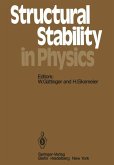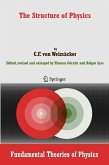Among the great ironies of quantum mechanics is not only that its conceptual foundations seem strange even to the physicists who use it, but that philosophers have largely ignored it. Here, Bernard d'Espagnat argues that quantum physics--by casting doubts on once hallowed concepts such as space, material objects, and causality-demands serious reconsideration of most of traditional philosophy.
On Physics and Philosophy is an accessible, mathematics-free reflection on the philosophical meaning of the quantum revolution, by one of the world's leading authorities on the subject. D'Espagnat presents an objective account of the main guiding principles of contemporary physics-in particular, quantum mechanics-followed by a look at just what consequences these should imply for philosophical thinking.
The author begins by describing recent discoveries in quantum physics such as nonseparability, and explicating the significance of contemporary developments such as decoherence. Then he proceeds to set various philosophical theories of knowledge--such as materialism, realism, Kantism, and neo-Kantism--against the conceptual problems quantum theory raises. His overall conclusion is that while the physical implications of quantum theory suggest that scientific knowledge will never truly describe mind-independent reality, the notion of such an ultimate reality--one we can never access directly or rationally and which he calls "veiled reality"--remains conceptually necessary nonetheless.
Table of contents:
Preface to the English Edition xi
Foreword 1
PART 1: PHYSICAL FACTS AND RELATED CONCEPTUAL PROBLEMS CHAPTER 1: Broad Overview 13
1-1. A General Picture 13
1-2. Some Useful Definitions 21
CHAPTER 2: Overstepping the Limits of the Framework of Familiar Concepts 32
2-1. Introduction 32
2-2. From Aristotle's Ontology to Descartes' Near Realism and Galilean Ontology 32
2-3. A Small Digression on Ontology 34
2-4. A Gradual Overstepping 37
2-5. Trajectories and Misleading "Pieces of Evidence" 38
2-6. On the Existence or Nonexistence of Hidden Things: Particles and Dirac's Sea 41
2-7. A "Fabricated" Ontology 46
2-8. Indications for What Follows 48
CHAPTER 3: Nonseparability and Bell's Theorem 51
3-1. Correlation at-a-Distance: Bell's Theorem 51
3-2. Locality and the Bell Theorem 58
3-3. Discussion and Philosophical Implications 71
CHAPTER 4: Objectivity and Empirical Reality 89
4-1. Strong Objectivity and Weak Objectivity (Alias Intersubjectivity) 89
4-2. The Measurement Problem and Empirical Reality 101
4-3. "Quantum Rules" and "von Neumann's Chain" 110
CHAPTER 5: Quantum Physics and Realism 113
5-1. Strong Objectivity and Realism 113
5-2. Intersubjective Agreement 127
5-3. Intersubjective Agreement and Empirical Reality 127
5-4. Conceptual Glimpses; Carnap, Quine, Primas; Relative Ontologies 129
CHAPTER 6: Universal Laws and the "Reality" Question 134
6-1. The "Theoretical Framework" Notion 134
6-2. Antiuniversalism and "Realism about Entities" 136
6-3. "Pythagorism" ("Einsteinism") 142
6-4. Remarks Concerning Two "Macrorealisms" 145
6-5. Quantum Mechanics as a Universal Theoretical Framework 146
6-6. Antirealism 148
CHAPTER 7: Antirealism and Physics; the Einstein-Podolsky-Rosen Problem; Methodological Operationalism 152
7-1. "Value of a Quantum Physical Quantity" in the Antirealist Framework 152
7-2. Operationalism (Alias "Instrumentalism") 156
7-3. On "Meaning" and "Prediction" 166
CHAPTER 8: Measurement and Decoherence, Universality Revisited 168
8-1. Introduction 168
8-2. Decoherence 177
8-3. Decoherence and State Robustness 189
8-4. The Everett-Zurek Semirealist Approach 190
8-5. Universality Revisited 192
CHAPTER 9: Various Realist Attempts 196
9-1. Introduction 196
9-2. On Our Intellectual Craving for Realism 196
9-3. The Broglie-Bohm Approach 199
9-4. The So-Called "Modal" Interpretation 206
9-5. The Heisenberg Representation: It Does Not, by Itself, Yield a Solution 209
9-6. Feynman's Reformulation and the Corresponding "Fabricated Ontology" 211
9-7. A "Realism of Signification" 216
9-8. Nonlinear Realist Quantum Theories 220
9-9. Outlook 222
CHAPTER 10: Schro¨ dinger's Cat, Wigner's Friend, and Veiled Reality 225
10-1. Introduction 225
10-2. Of Pointers and Cats 225
10-3. Wigner's Friend 228
10-4. The Veiled Reality Hypothesis 236
PART 2: A PHILOSOPHICAL ANALYSIS CHAPTER 11: Science and Philosophy 249
11-1. The Impossible Split 249
11-2. Epistemology in the Late Twentieth Century 250
11-3. A Critical Glance at Some Claims 255
11-4. Physics and Linguistics 258
11-5. Sociologism 261
11-6. The End of Certainties? 263
CHAPTER 12: Materialisms 265
12-1. Introduction 265
12-2. Dialectical Materialism 265
12-3. The So-Called "Scientific" Materialism 266
12-4. "Neomaterialism" and Physics 272
12-5. The Purely Philosophical Aspects of Neomaterialism 276
12-6. Materialism and Wisdom 281
CHAPTER 13: Suggestions from Kantism 282
13-1. Introduction 282
13-2. A Look at Kantism 282
13-3. Facing the Refusal of the Independent Reality Notion 291
13-4. Kant and Our Contemporaries 306
CHAPTER 14: Causality and Observational Predictability 312
14-1. Introduction 312
14-2. Causes and Laws 312
14-3. Determinism and Causality 315
14-4. Determinism and Chaos 316
14-5. Quantum Indeterminacy 319
14-6. Predictability and Reliability Revisited 326
14-7. The Influence Notion Revisited 330
CHAPTER 15: Explanation and Phenomena 333
15-1. Introduction 333
15-2. The Notion of Explanation 333
15-3. Back to the "Explanatory Power of Predictive Rules" Question 342
15-4. Empirical Reality and Abstractions, Explanation, and Empirical Causality 344
15-5. The Rainbow Analogy 347
15-6. Removing the "Paradox of the Dinosaurs" 351
15-7. The "False Explanation" Question 352
CHAPTER 16: Mind and Things 354
16-1. Empiricism, Positivism, and So On 354
16-2. Phenomenalism 355
16-3. Ambiguities about Innatism 366
16-4. Poincaré, Conventionalism, and Structural Realism 368
CHAPTER 17: Pragmatic-Transcendental versus Veiled Reality Approaches 376
17-1. Introduction 376
17-2. Replies to Michel Bitbol's and Herve´ Zwirn's Objections 376
17-3. The Pragmatic-Transcendental Approach 396
17-4. A Few Notes on Zwirn's Approach 402
CHAPTER 18: Objects and Consciousness 405
18-1. Introduction 405
18-2. Truth: Definitions and Criteria 406
18-3. Objects and "Orders," or "Levels," of Reality 408
18-4. A Few Remarks Concerning Sensations 411
18-5. On the Question of the Plurality of Minds 426
CHAPTER 19: The "Ground of Things" 429
19-1. Introduction 429
19-2. Mystery, Affectivity, and Meaning 429
19-3. Do Things Have a "Ground"? Pro and Con Received Arguments 434
19-4. Some Consequences of the Evolution of Physics 443
19-5. The Veiled Reality Conception Reexamined 449
APPENDIX 1: The Bell Theorem 465
A. Proof 465
B. A Simplified Proof 470
C. A Glance at the Experimental State of Things 473
D. Historical Comments and a Short Bibliography 474
APPENDIX 2: Consistent Histories, Counterfactuality, and Bell's Theorem 477
APPENDIX 3
Correlation-at-a-Distance in the Broglie-Bohm Model 483
References 485
Name Index 493
Subject Index 497
On Physics and Philosophy is an accessible, mathematics-free reflection on the philosophical meaning of the quantum revolution, by one of the world's leading authorities on the subject. D'Espagnat presents an objective account of the main guiding principles of contemporary physics-in particular, quantum mechanics-followed by a look at just what consequences these should imply for philosophical thinking.
The author begins by describing recent discoveries in quantum physics such as nonseparability, and explicating the significance of contemporary developments such as decoherence. Then he proceeds to set various philosophical theories of knowledge--such as materialism, realism, Kantism, and neo-Kantism--against the conceptual problems quantum theory raises. His overall conclusion is that while the physical implications of quantum theory suggest that scientific knowledge will never truly describe mind-independent reality, the notion of such an ultimate reality--one we can never access directly or rationally and which he calls "veiled reality"--remains conceptually necessary nonetheless.
Table of contents:
Preface to the English Edition xi
Foreword 1
PART 1: PHYSICAL FACTS AND RELATED CONCEPTUAL PROBLEMS CHAPTER 1: Broad Overview 13
1-1. A General Picture 13
1-2. Some Useful Definitions 21
CHAPTER 2: Overstepping the Limits of the Framework of Familiar Concepts 32
2-1. Introduction 32
2-2. From Aristotle's Ontology to Descartes' Near Realism and Galilean Ontology 32
2-3. A Small Digression on Ontology 34
2-4. A Gradual Overstepping 37
2-5. Trajectories and Misleading "Pieces of Evidence" 38
2-6. On the Existence or Nonexistence of Hidden Things: Particles and Dirac's Sea 41
2-7. A "Fabricated" Ontology 46
2-8. Indications for What Follows 48
CHAPTER 3: Nonseparability and Bell's Theorem 51
3-1. Correlation at-a-Distance: Bell's Theorem 51
3-2. Locality and the Bell Theorem 58
3-3. Discussion and Philosophical Implications 71
CHAPTER 4: Objectivity and Empirical Reality 89
4-1. Strong Objectivity and Weak Objectivity (Alias Intersubjectivity) 89
4-2. The Measurement Problem and Empirical Reality 101
4-3. "Quantum Rules" and "von Neumann's Chain" 110
CHAPTER 5: Quantum Physics and Realism 113
5-1. Strong Objectivity and Realism 113
5-2. Intersubjective Agreement 127
5-3. Intersubjective Agreement and Empirical Reality 127
5-4. Conceptual Glimpses; Carnap, Quine, Primas; Relative Ontologies 129
CHAPTER 6: Universal Laws and the "Reality" Question 134
6-1. The "Theoretical Framework" Notion 134
6-2. Antiuniversalism and "Realism about Entities" 136
6-3. "Pythagorism" ("Einsteinism") 142
6-4. Remarks Concerning Two "Macrorealisms" 145
6-5. Quantum Mechanics as a Universal Theoretical Framework 146
6-6. Antirealism 148
CHAPTER 7: Antirealism and Physics; the Einstein-Podolsky-Rosen Problem; Methodological Operationalism 152
7-1. "Value of a Quantum Physical Quantity" in the Antirealist Framework 152
7-2. Operationalism (Alias "Instrumentalism") 156
7-3. On "Meaning" and "Prediction" 166
CHAPTER 8: Measurement and Decoherence, Universality Revisited 168
8-1. Introduction 168
8-2. Decoherence 177
8-3. Decoherence and State Robustness 189
8-4. The Everett-Zurek Semirealist Approach 190
8-5. Universality Revisited 192
CHAPTER 9: Various Realist Attempts 196
9-1. Introduction 196
9-2. On Our Intellectual Craving for Realism 196
9-3. The Broglie-Bohm Approach 199
9-4. The So-Called "Modal" Interpretation 206
9-5. The Heisenberg Representation: It Does Not, by Itself, Yield a Solution 209
9-6. Feynman's Reformulation and the Corresponding "Fabricated Ontology" 211
9-7. A "Realism of Signification" 216
9-8. Nonlinear Realist Quantum Theories 220
9-9. Outlook 222
CHAPTER 10: Schro¨ dinger's Cat, Wigner's Friend, and Veiled Reality 225
10-1. Introduction 225
10-2. Of Pointers and Cats 225
10-3. Wigner's Friend 228
10-4. The Veiled Reality Hypothesis 236
PART 2: A PHILOSOPHICAL ANALYSIS CHAPTER 11: Science and Philosophy 249
11-1. The Impossible Split 249
11-2. Epistemology in the Late Twentieth Century 250
11-3. A Critical Glance at Some Claims 255
11-4. Physics and Linguistics 258
11-5. Sociologism 261
11-6. The End of Certainties? 263
CHAPTER 12: Materialisms 265
12-1. Introduction 265
12-2. Dialectical Materialism 265
12-3. The So-Called "Scientific" Materialism 266
12-4. "Neomaterialism" and Physics 272
12-5. The Purely Philosophical Aspects of Neomaterialism 276
12-6. Materialism and Wisdom 281
CHAPTER 13: Suggestions from Kantism 282
13-1. Introduction 282
13-2. A Look at Kantism 282
13-3. Facing the Refusal of the Independent Reality Notion 291
13-4. Kant and Our Contemporaries 306
CHAPTER 14: Causality and Observational Predictability 312
14-1. Introduction 312
14-2. Causes and Laws 312
14-3. Determinism and Causality 315
14-4. Determinism and Chaos 316
14-5. Quantum Indeterminacy 319
14-6. Predictability and Reliability Revisited 326
14-7. The Influence Notion Revisited 330
CHAPTER 15: Explanation and Phenomena 333
15-1. Introduction 333
15-2. The Notion of Explanation 333
15-3. Back to the "Explanatory Power of Predictive Rules" Question 342
15-4. Empirical Reality and Abstractions, Explanation, and Empirical Causality 344
15-5. The Rainbow Analogy 347
15-6. Removing the "Paradox of the Dinosaurs" 351
15-7. The "False Explanation" Question 352
CHAPTER 16: Mind and Things 354
16-1. Empiricism, Positivism, and So On 354
16-2. Phenomenalism 355
16-3. Ambiguities about Innatism 366
16-4. Poincaré, Conventionalism, and Structural Realism 368
CHAPTER 17: Pragmatic-Transcendental versus Veiled Reality Approaches 376
17-1. Introduction 376
17-2. Replies to Michel Bitbol's and Herve´ Zwirn's Objections 376
17-3. The Pragmatic-Transcendental Approach 396
17-4. A Few Notes on Zwirn's Approach 402
CHAPTER 18: Objects and Consciousness 405
18-1. Introduction 405
18-2. Truth: Definitions and Criteria 406
18-3. Objects and "Orders," or "Levels," of Reality 408
18-4. A Few Remarks Concerning Sensations 411
18-5. On the Question of the Plurality of Minds 426
CHAPTER 19: The "Ground of Things" 429
19-1. Introduction 429
19-2. Mystery, Affectivity, and Meaning 429
19-3. Do Things Have a "Ground"? Pro and Con Received Arguments 434
19-4. Some Consequences of the Evolution of Physics 443
19-5. The Veiled Reality Conception Reexamined 449
APPENDIX 1: The Bell Theorem 465
A. Proof 465
B. A Simplified Proof 470
C. A Glance at the Experimental State of Things 473
D. Historical Comments and a Short Bibliography 474
APPENDIX 2: Consistent Histories, Counterfactuality, and Bell's Theorem 477
APPENDIX 3
Correlation-at-a-Distance in the Broglie-Bohm Model 483
References 485
Name Index 493
Subject Index 497








